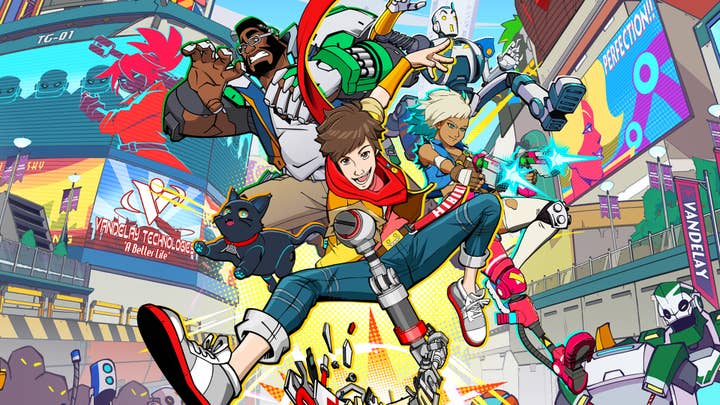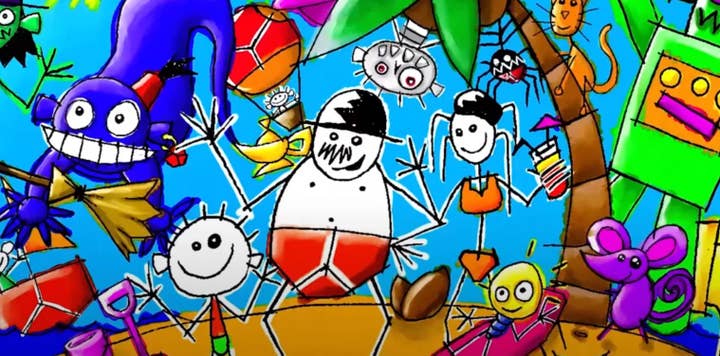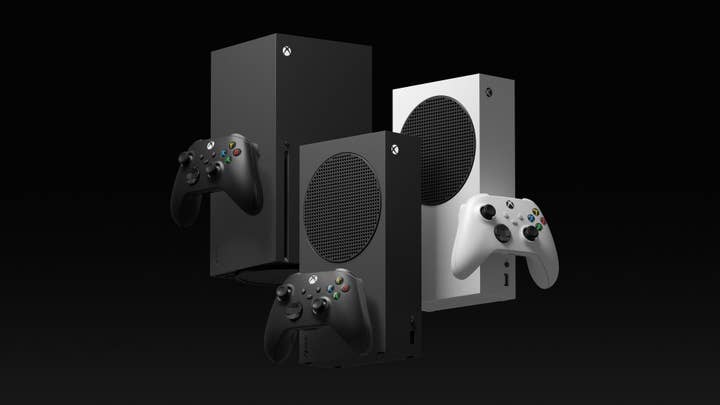Will Xbox publishing on rival consoles spark a Revolution? | Opinion
Microsoft cannot win going head-to-head with PlayStation, so it's changing the rules
Do you remember the codename for the Wii?
It was called project 'Revolution', which was a surprising moment of hubris for a company that had been soundly defeated (again) by PlayStation. Not only had Sony trounced sales of Nintendo's console for a second consecutive generation, but it had also extended its lead and Nintendo had fallen further behind. The house of Mario had been defeated.
Nintendo needed to pivot to something else. Sega, following the Dreamcast, had pivoted to third-party publishing. Yet Nintendo had other ideas. It looked at its competitors, specifically what they weren't doing and who they weren't catering for, and went after that audience instead.
The Revolution/Wii was a huge success alongside its Nintendo DS sister product. When iPhone came along and started to cater for this newly found casual audience (more effectively and on a greater scale), Nintendo pivoted again, bringing its IP to mobile and building a device that sat somewhere between smartphones and high-end consoles (the Switch).
Some fans still bemoan Nintendo's reluctance to invest in higher specs with its hardware, but it lost that battle, and since it gave up going head-to-head with Xbox and PlayStation, it's managed to release three systems that have each sold more than 100 million units (and notably, three systems that outsold the PlayStation equivalent at the time). It was through failure that Nintendo reached greater heights.
Just like Nintendo couldn't in 2005, Xbox cannot beat PlayStation. We operate in a business where people are locked into their ecosystems. PlayStation is where their trophies are, where their high scores can be found, it's what their friends are playing on, it's where their digital game library sits… the amount of time, effort and money required to convince people to abandon one platform for another in 2024 is simply too high. Xbox has also been defeated.

So what does Microsoft's 'Revolution' look like? Whereas Nintendo took a hardware approach to finding new audiences, Microsoft is going deeper into how games are distributed and paid for. It's about things like Game Pass, smartphones, PC and streaming. Xbox believes that investing in these areas will help it find customers that Nintendo and Sony are not reaching.
(Obviously, as with Wii Sports and the Wii, the games themselves will play the biggest part in unlocking new audiences).
This vision doesn't just allow for Xbox games to come to other devices, it requires it. It's just the platforms it has been prioritising are those where it can build its own ecosystem. It wants the regulators to force Apple to open up its system so Xbox can have its own a mobile store. It wants to have Game Pass on as many devices as would have it. If there's an Xbox store or a Game Pass offering on a machine, then that machine is effectively an Xbox.
Unfortunately, this 'Revolution' is taking its time. Game Pass growth, following an early spike during the pandemic, has slowed. Streaming remains more an idea than a realistic business prospect. The mobile ecosystems remain closed off to third-party app stores (for now). And game development over the last five years has been slow, impacting Xbox's ability to sell these propositions with high quality, diversified games.
All the while, its games consoles are falling further and further behind its rivals. And putting all its games into Game Pass may be having a detrimental impact on the profit margins of these games. Starfield attracted a huge number of players (13 million in just over three months), but it didn't crack the Top 30 in Europe (although it was No.11 in the US by revenue). Meanwhile, incredible games like Pentiment and Hi-Fi Rush barely registered in the sales charts at all. They all had great player numbers, but you have to wonder how profitable they were on an individual product level.
"Microsoft is putting itself in a prime position to be the future leader of the games business, but that future isn't here yet"
So Xbox's 'Revolution' moment remains a work-in-progress, and its existing console business is having a rough time. And speaking more broadly, the fight for attention in entertainment has never been fiercer. When you consider those factors, the notion of releasing some of its games on competitor platforms doesn't seem quite so surprising.
In fact, Xbox's history is filled with examples of this behaviour. Even going back to the beginning, it was porting Xbox games to PC. When it acquired Rare in 2002, it had inherited a team that specialised in making handheld games. Rather than closing or merging it with other departments, it allowed that team to continue making games for Nintendo handhelds, right up until 2008. (And I'm personally glad they did, otherwise we might not have got the majestic work of genius that is It's Mr Pants).

Over the last ten years, that's stepped up considerably following the acquisition of Minecraft. Not only has Microsoft kept that game multiplatform, but it's actively invested in other console versions. Minecraft is the most successful third-party game on Nintendo Switch, and all subsequent Minecraft games – such as Minecraft Dungeons – were all multiplatform releases (including on PlayStation).
This approach is being mirrored for Call of Duty. To get its Activision Blizzard deal past the regulators, Microsoft committed to keeping Call of Duty on PlayStation for ten years, but not just that, it also promised to release it on Nintendo platforms, too. These were both promises the company proactively made.
There are other examples. Microsoft was a strong advocate for cross-play between all the consoles. And it's enjoyed a strong relationship with Nintendo, ranging from having its characters in Super Smash Bros, to the Ori series launching on Nintendo Switch.
All of this can be explained away as necessary or sensible business decisions. You wouldn't expect Microsoft to risk making Call of Duty or Minecraft exclusive, because that might cause more harm than good. The Ori series, as a 2D Metroidvania franchise, is perfectly suited to the Nintendo audience. And who says no to having a character in Smash Bros?
Microsoft isn't the only one working with other platforms. Sony is proactively porting its titles to PC, and owns the multiplatform live-service publisher Bungie. Nintendo has also been developing smartphone games featuring some of its biggest names in order to find new audiences. These moves are not on the same scale as what Xbox is doing, but it's still a significant change to what either business was open to 10 years ago.
"The Xbox console still has a selling point neither PlayStation or Nintendo has: Game Pass"
The reports that some Xbox games may be coming to PlayStation, which has traditionally been Microsoft's closest rival, goes beyond all that, of course. But the objective is the same. The overall console userbase has largely stayed the same size for the last 20 years, and releasing games on other platforms offers a way to find new players (and multiplatform is just one way of doing this, with all three companies also investing in TV and movie production).
The fear from Xbox's community is what impact this move will have on sales of the hardware. Could it effectively kill the console? And certainly, putting games on PlayStation 5 is a risk. But when your business strategy is about going beyond the box anyway, it's perhaps a risk worth taking. The Xbox console still has a selling point neither PlayStation or Nintendo has, which is the ability to play Microsoft's (and Bethesda's and Activision's) library of games for a monthly subscription fee.
I would expect there's a balancing act in terms of what games to release on other platforms and when. Console sales may not be Xbox's primary goal, but it remains a viable business and it'll be cautious and monitor the impact carefully. I certainly don't expect to suddenly see all of Xbox's titles launching day and date on PS5 (although we will find out more next week).
Microsoft is putting itself in a prime position to be the future leader of this business, but that future isn't here yet. And making games for other consoles could enable it to generate strong revenue and even find new fans, which will afford it more time to tinker away on its own Revolution.

